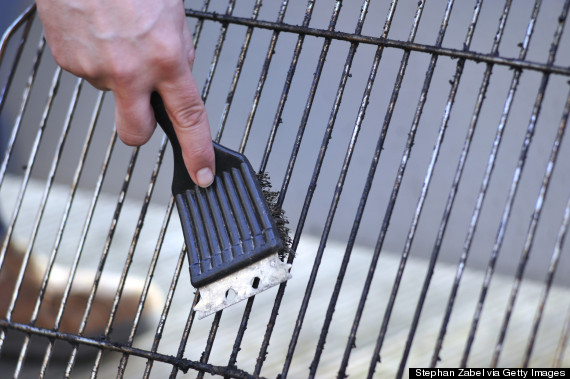
By Amir Khan for U.S. News Health
Cooking at home is one of the best ways to lose weight, since you control what goes into your food. But sometimes, what's in your kitchen is as important as what's in your mouth. Using old or outdated tools can have a big impact on your health, from spreading germs to putting you at risk for cancer. Here are seven items that you need to replace in your kitchen right now.
Nonstick Pan
Nonstick pans are great for cooking eggs, but be careful how you use them –- heating nonstick pans higher than 500 degrees Fahrenheit can release toxic fumes that, while not deadly, can make you sick. And while 500 degrees is hotter than you will typically heat cookware, scratched and damaged pans will release these colorless, odorless fumes at a lower temperature. So if your nonstick pan is scratched, toss it and get a new one. “Newer pans produce much lower levels of these fumes,” says Albert Levy, an assistant clinical professor of medicine at Mount Sinai Medical Center in New York City. “If you have a nonstick pan produced before 2010, replace it.”
Grill Brush
Summertime is grilling season, but before you clean off the grill, you should think about tossing out your brush and getting a new one. Bristles can fall off old and heavily used brushes, end up in your food and cause severe damage. “When swallowed, these bristles can puncture your throat, stomach or intestines,” says Deborah Orlick Levy, a registered dietitian and consultant for the health food company Carrington Farms. “You should replace these brushes every two to three months, but check it frequently. If the bristles are coming loose, get rid of it and buy a new one.”
Plastic Food Containers
Older food storage containers often contain bisphenol A, better known as BPA, a compound used in plastic manufacturing that has been linked to a host of health problems, including cancer, heart disease, obesity and more -– so if you haven’t bought new containers in a while, now’s the time. “BPA can seep into your food and drink and cause all kinds of nasty health effects,” Orlick Levy says. “Thankfully, more and more companies are phasing it out of their products, so it’s easy to find BPA-free containers.”
Cutting Board
Cutting boards, whether they're wood or plastic, need to be replaced regularly. While soap and water will clean any bacteria on the surface, your knives leave gouges and cuts that can harbor bacteria and make it difficult to disinfect. “Cutting boards are cheap and replaceable,” Levy says. “As soon as you see deep cuts or scratches in your board, get rid of it. They’re not worth getting sick over.”
Sponge
Sponges are porous and damp, making them cozy bacteria traps. While rinsing your sponge with hot water and zapping it in the microwave for 30 seconds can help sanitize it, you should replace it regularly so you're not spreading germs every time you clean your dishes. "Sponges are notoriously contaminated,” Levy says. "They can be among the dirtiest things in your kitchen. Once you’ve had it longer than two weeks, get rid of it."
Dish Towel
Much like your kitchen sponges, dish towels can become a home to millions upon millions of bacteria -– and if you use the same towel to wipe your counters and your hands, you could be setting yourself up to get sick. Launder them frequently, but be sure to replace them often as well.
Fire Extinguisher
While it may not directly affect your health, it’s important to make sure your fire extinguisher is still working. Check out its gauge to see if the needle is still in the green. If it is? You’re set. If not, get a new one. You don’t want to wait until it's too late.
